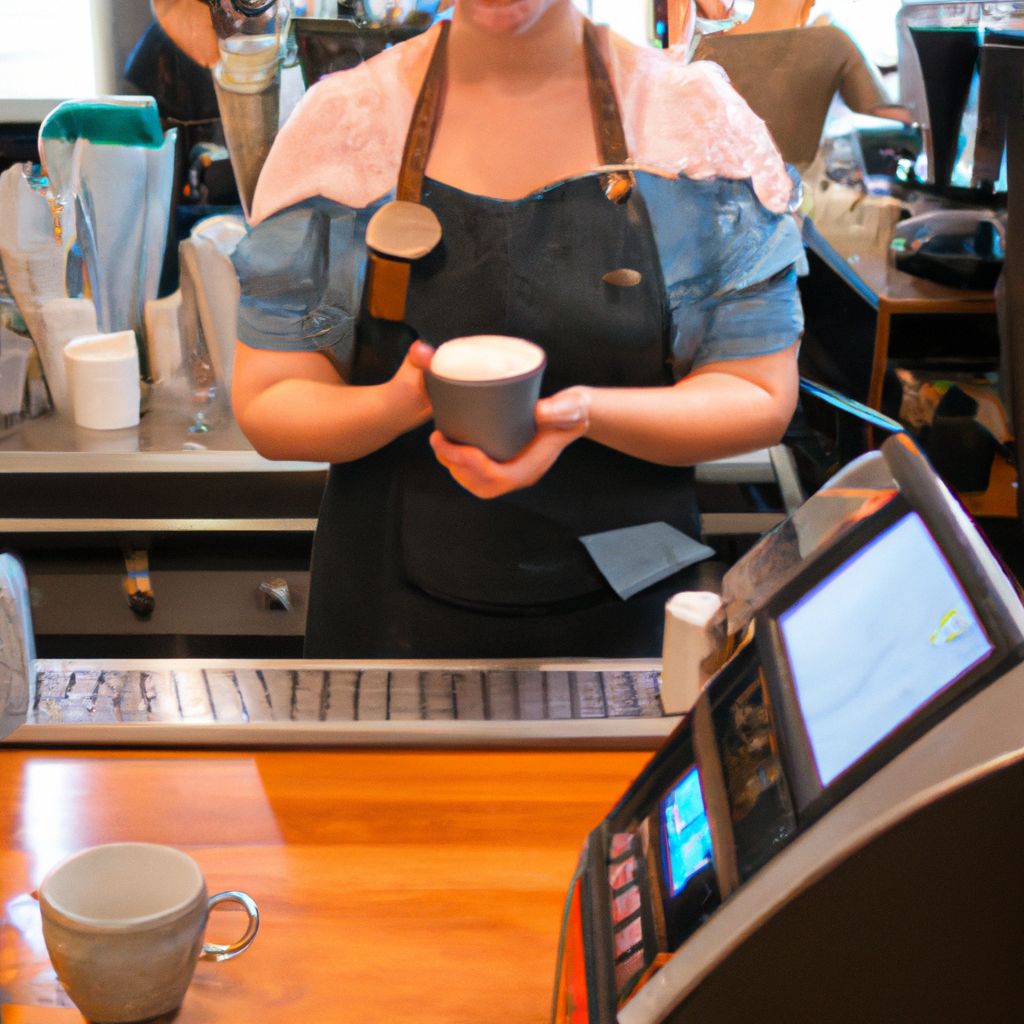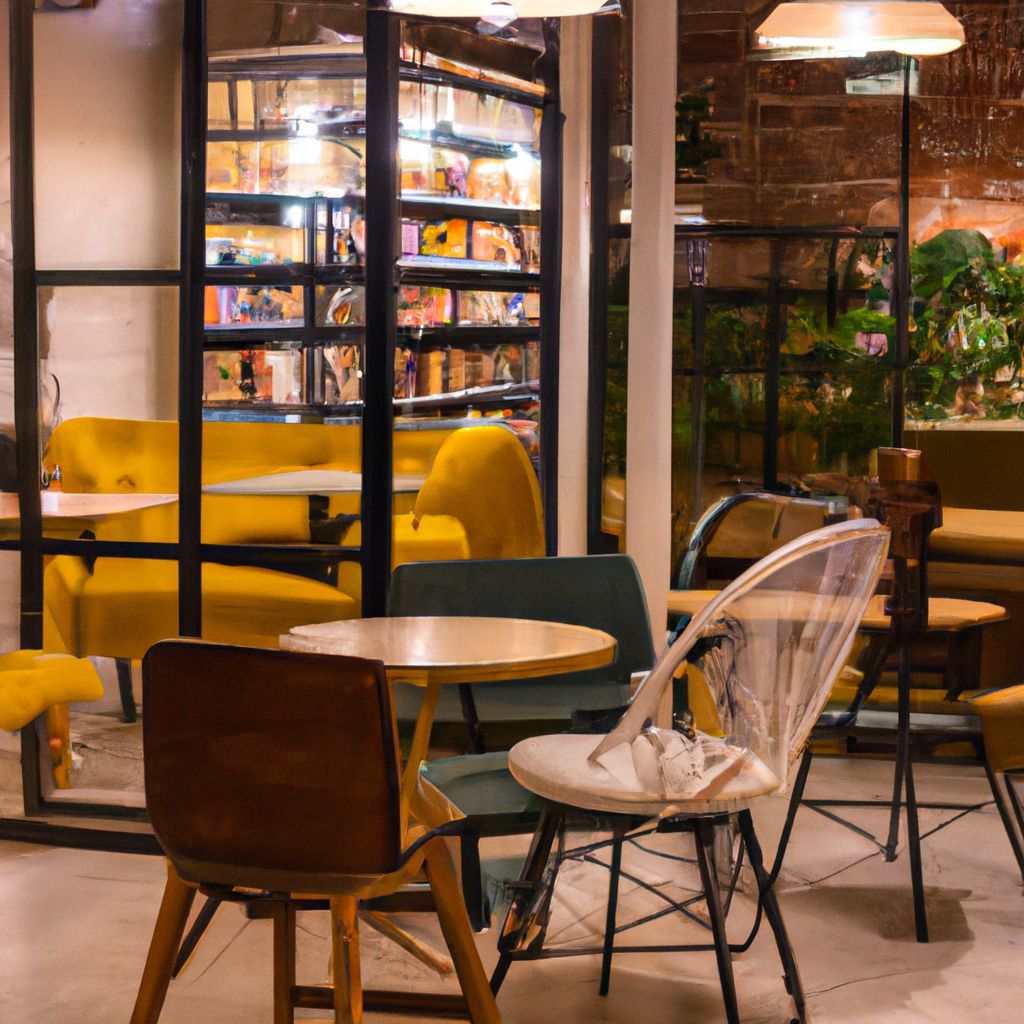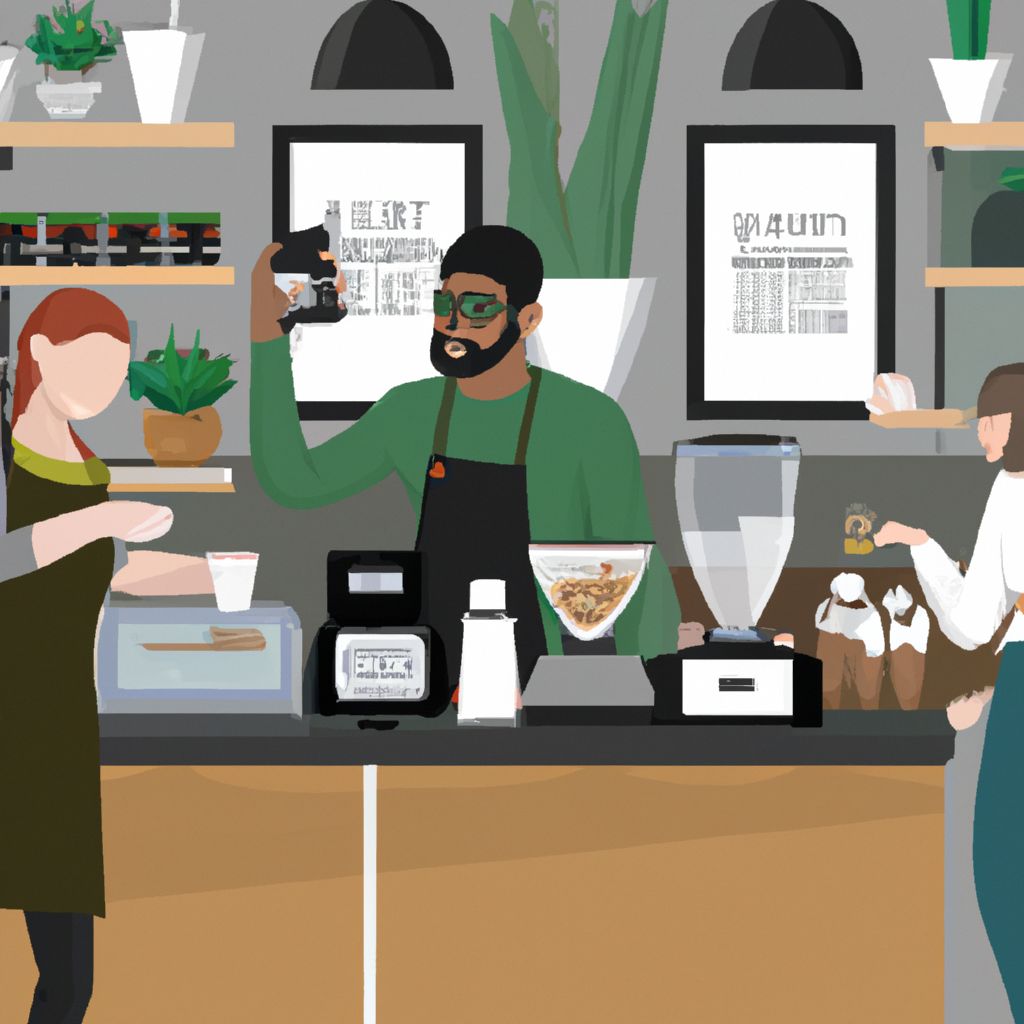- Introduction to Customer Service in Coffee Shops
- Essential Customer Service Skills for Baristas
- Creating a Welcoming Atmosphere
- Understanding and Catering to Customer Preferences
- Handling Difficult Customer Situations
- The Role of Communication in Customer Service
- Measuring Customer Service Success
- Conclusion: The Impact of Exceptional Customer Service
Introduction to Customer Service in Coffee Shops

Customer service plays a pivotal role in the coffee shop industry. It's the backbone of the business and has a significant impact on its success. The experience a customer has in a coffee shop is often as important as the quality of the coffee itself. This is where baristas come in - they are the frontline staff, the ones who interact directly with the customers, and their performance largely determines the customer's overall experience.
According to a survey conducted by Zagat, 60% of coffee shop customers believe that the quality of service is as critical as the quality of the product. This clearly shows the importance of excellent customer service in the coffee shop industry.
Baristas are the heart and soul of a coffee shop. They are the ones who prepare and serve the coffee, take orders, and interact with the customers. More than just being able to make a great cup of coffee, a barista's role involves building rapport with customers, understanding their preferences, and providing a personal touch that makes customers feel valued and appreciated.
In essence, a barista's role extends far beyond their technical skills. Their interpersonal skills, attitude, and ability to deliver exceptional customer service can significantly influence a coffee shop's reputation and success.
Essential Customer Service Skills for Baristas

Effective customer service in coffee shops requires a unique set of skills, each playing a vital role in ensuring a positive customer experience. Let's delve into the critical skills needed:
- Communication
- Clear and effective communication is the foundation of exceptional customer service. Baristas must be able to understand customer orders accurately, and convey information about their products clearly. For example, explaining the difference between various coffee types or suggesting a coffee based on a customer's preference.
- Patience
- Customers may take time to decide, ask repeated questions, or even change their orders. In such instances, patience is a virtue. A barista showing patience and understanding can turn a potentially negative situation into a positive customer experience.
- Empathy
- Empathy allows baristas to understand and share the feelings of their customers. If a customer is dissatisfied, empathizing with their situation and offering a genuine apology can go a long way towards maintaining a good relationship.
- Adaptability
- Every customer is unique, and so are their needs. An adaptable barista is able to handle different types of customers, manage unexpected situations (like a sudden rush of customers), and cater to diverse customer requests (like customizing a coffee order).
- Product Knowledge
- In-depth knowledge about the shop's offerings is crucial. A barista with extensive product knowledge can make tailored recommendations, answer customer queries confidently, and ensure that each customer gets a coffee that suits their taste.
By honing these skills, baristas can significantly enhance the customer experience, leading to higher customer satisfaction and loyalty.
Creating a Welcoming Atmosphere

The ambiance of a coffee shop plays a significant role in attracting and retaining customers. Creating a welcoming and comfortable environment encourages customers to stay longer and return more frequently. This atmosphere creation is as much a part of customer service as the interaction between the customer and the barista.
Here are some ways to create a welcoming atmosphere:
- Maintain Cleanliness: A clean and tidy coffee shop tells customers that you care about their health and comfort. Regular cleaning, especially in high-traffic areas like the counter and restroom, is essential.
- Play Soothing Music: The right choice of music can create a soothing and relaxing atmosphere. It's advisable to choose music that complements the coffee shop's vibe and is at a volume that allows customers to enjoy their conversations or work.
- Provide Comfortable Seating: Comfortable seating encourages customers to stay longer. Make sure there are different seating options to cater to various customer needs - some might prefer a comfortable couch for leisurely chats, while others might need a table and chair for work or study.
Remember, the goal is to create an environment where customers feel at ease and wish to return. By focusing on these elements, coffee shops can create a welcoming atmosphere that enhances the overall customer experience.
Understanding and Catering to Customer Preferences

Understanding individual customer preferences is integral to providing excellent customer service in coffee shops. Every customer has unique tastes and preferences when it comes to coffee types, brewing methods, and additional flavors. Catering to these preferences not only ensures customer satisfaction but also helps in building long-term customer relationships.
A barista can cater to customer preferences by first understanding them. This can be done through direct questions, observing repeated orders, or even through casual conversations. The key is to listen attentively and show genuine interest in the customer's coffee preferences.
For example, if a customer typically orders a cappuccino, the barista might recommend trying a flat white for a change, explaining how it differs from a cappuccino. If a customer prefers cold brew, the barista could suggest different brewing methods or new flavors to try. The ultimate goal is to make the customer feel that their preferences are valued and catered for.
Personalized recommendations based on customer preferences can elevate the customer experience, making customers feel special and valued. It shows that the barista not only knows their products well but also takes the time to understand and cater to each customer's unique taste.
In essence, paying attention to customer preferences and making personalized recommendations is a powerful way for baristas to enhance customer service and build strong relationships with customers.
Handling Difficult Customer Situations

Dealing with difficult customers or situations is inevitably part of a barista's role. How these situations are handled can significantly affect the customer's perception of the coffee shop. The key is to approach these situations with calmness, understanding, and a problem-solving mindset.
Here are some tips for handling difficult customer situations:
- Stay Calm: It's crucial to remain calm and composed, even if the customer is angry or upset. Responding with agitation can escalate the situation. Remember, the goal is to resolve the issue, not to win an argument.
- Listen Actively: Allow the customer to express their concerns without interruption. Show empathy and understanding by using phrases like "I understand why you're upset" or "I'm sorry you're experiencing this". This shows the customer that you're genuinely interested in resolving their issue.
- Find a Solution: After understanding the problem, work on finding a solution that satisfies the customer. This might involve replacing a coffee that wasn’t up to the mark, providing a refund, or offering a complimentary product or service.
Remember, the goal isn't just to resolve the issue, but to turn a negative situation into a positive customer experience. By handling difficult situations with grace and professionalism, baristas can maintain a positive image of the coffee shop and potentially turn dissatisfied customers into loyal ones.
The Role of Communication in Customer Service

Effective communication is a cornerstone of exceptional customer service in coffee shops. It facilitates understanding, builds relationships, and enhances the overall customer experience. It applies not only to interactions with customers but also within the team.
When communicating with customers, clarity is paramount. Customers should be able to understand the details of the menu, the special features of a particular coffee, or any promotional offers. Miscommunication can lead to misunderstandings and customer dissatisfaction.
Polite and friendly communication helps build a positive rapport with customers. A warm greeting, a friendly smile, and a polite conversation can make customers feel valued and welcomed. For example, instead of simply taking an order, a barista can engage in a short, friendly conversation about the customer's day or their coffee preferences.
Communication within the team is equally important. A well-coordinated team can provide faster and more efficient service, leading to a better customer experience. Furthermore, good internal communication can foster a positive work environment, which can reflect in the team's interactions with customers.
To sum up, effective communication, both with customers and within the team, is a vital component of excellent customer service in coffee shops. It helps in building relationships, avoiding misunderstandings, and creating a positive customer experience.
Measuring Customer Service Success

Measuring customer service success is vital for continuous improvement and growth in the coffee shop industry. It provides valuable insights into what's working well and what needs improvement. Here are some ways to measure customer service success:
- Customer Feedback:
- Direct feedback from customers is a valuable source of information. This could be obtained through comment cards, feedback forms, or simply by asking customers about their experience. Positive feedback is a good indicator of success, while negative feedback provides opportunities for improvement.
- Repeat Business:
- Customers returning for more is a strong sign of successful customer service. It shows that customers are satisfied with the service and products, and choose to return instead of going to a competitor. Tracking the number of repeat customers can provide a measure of customer service success.
- Online Reviews:
- Online reviews on platforms like Yelp, Google, and social media provide insights into customer perceptions. Positive reviews can boost reputation, while negative reviews can highlight areas that need improvement.
Once the success is measured, the next step is to use this information to improve. For instance, if feedback indicates that customers find the shop too noisy, consider implementing noise reduction measures. If repeat business is low, look into ways to encourage customer loyalty, like loyalty programs or personalized service.
Remember, the goal of measuring customer service success is not just to pat oneself on the back for what's going well, but more importantly, to identify and address areas for improvement. This continuous improvement mindset is what drives long-term success in customer service.
Conclusion: The Impact of Exceptional Customer Service

Exceptional customer service holds significant importance in the coffee shop industry. It is not just about making a sale, but building relationships, enhancing the customer experience, and setting the coffee shop apart from the competition.
Providing outstanding customer service can lead to a multitude of benefits. It can foster customer loyalty, turning one-time visitors into repeat customers. Happy customers are likely to spread positive word-of-mouth, recommending the coffee shop to friends and family, thereby attracting new customers. Ultimately, these factors contribute to higher sales and profitability for the coffee shop.
Moreover, exceptional customer service can enhance the coffee shop's reputation, turning it into a preferred choice for coffee lovers. In a competitive market, this can be a crucial differentiator.
Overall, exceptional customer service is a powerful tool in the coffee shop industry. By focusing on customer needs, building relationships, and continuously striving for improvement, coffee shops can provide exceptional customer service that drives success.


